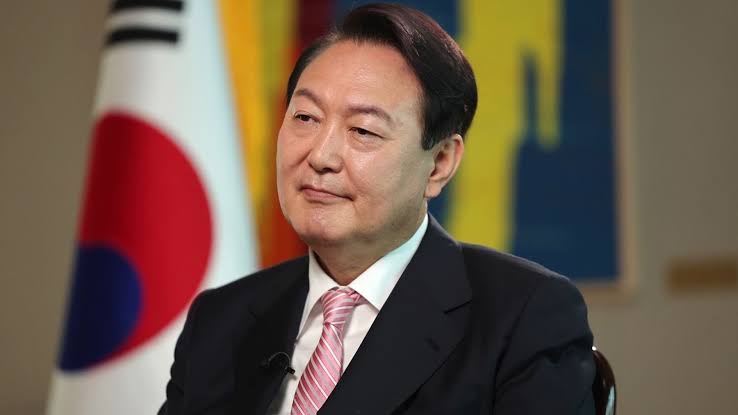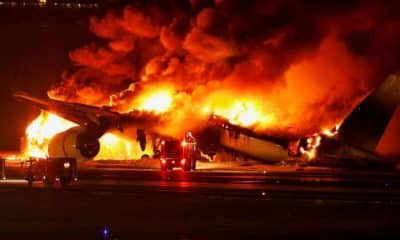World News
South Korea’s President Yoon Suk Yeol Banned From Leaving The Country Amid Political Crisis

South Korea’s President Yoon Suk Yeol has been banned from leaving the country, the justice ministry confirmed on Monday, following a series of controversial events that have rocked the nation.
Naija News learnt that this decision comes just days after Yoon declared martial law, sending special forces and helicopters to parliament on December 3, only for lawmakers to force him to retract the order.
This escalated tensions and led to his narrow survival of an impeachment motion just days later.
Despite remaining in office, Yoon faces mounting investigations, including one for alleged insurrection, targeting him and several of his close associates.
For the first time in South Korea’s history, a sitting president has been placed under a travel ban.
In addition to Yoon, former defence minister Kim Yong-Hyun, who is in detention, and ex-interior minister Lee Sang-min have also been banned from travel.
Key military figures involved in the martial law operation, including General Park An-su and defense counterintelligence commander Yeo In-hyung, are also restricted from leaving the country.
The impeachment attempt failed after Yoon’s own People Power Party (PPP) walked out of parliament, preventing the two-thirds majority needed for the motion to pass.
In a controversial move, the PPP claims that Yoon, 63, has agreed to transfer his power to the prime minister and PPP leader, though this has sparked protests from the opposition.
Democratic Party floor leader Park Chan-dae labeled the shift as an unconstitutional act of insurrection.
South Korea’s constitution states that the president remains the head of government and military unless incapacitated or removed.
However, the ruling party’s suggestion that Yoon could delegate power to an unelected official has been heavily criticized, with opposition leaders calling it an unconstitutional soft coup.
Despite the controversy, the Defence Ministry assured the public that Yoon still holds command of the military, crucial as tensions with North Korea remain high.
Yoon has apologized for the martial law incident but has not resigned, stating he would let his party decide his fate and accept full responsibility for the crisis.
Experts, including constitutional law professor Kim Hae-won, argue that there is no legal basis for transferring power to unelected officials and warn that the country is veering dangerously close to constitutional violations.
“It seems to resemble an unconstitutional soft coup.
“If there are issues with the president, there are ways laid out in the constitution, such as suspending the president from his duties, and then move on to proceedings set out in the constitution, such as impeachment,” he told AFP.
The opposition is gearing up for another attempt to impeach Yoon, with protests expected to intensify outside the National Assembly.
Yoon’s approval rating has plummeted to an all-time low of 11%, according to a Gallup poll, highlighting the deepening public dissatisfaction with his leadership.












